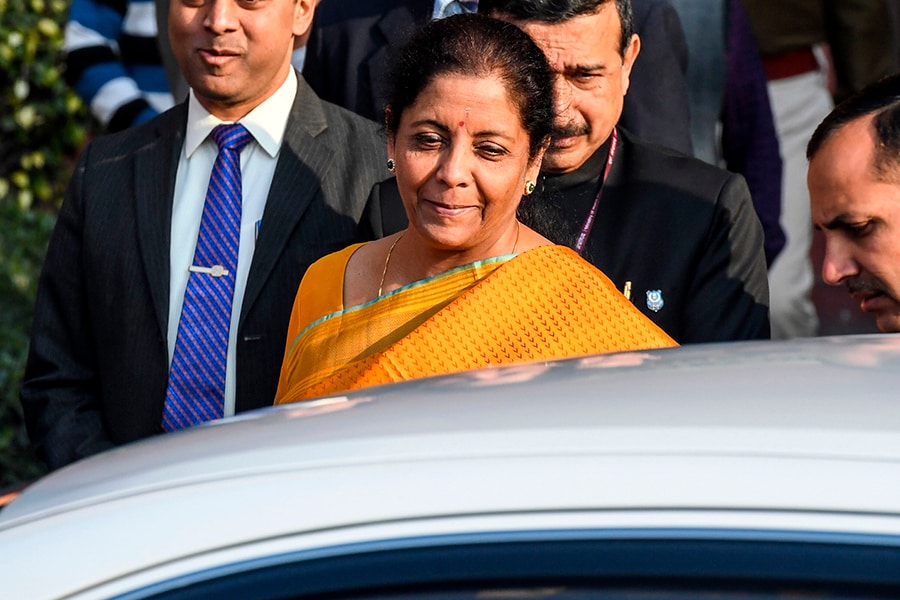Budget 2020: A mixed bag with no emphasis on jobs, addressing slowdown
Agri reforms, tax tweaks are positives, but there is no push for consumption; experts say sentiment will remain dampened in the near term


 Image: PRAKASH SINGH/AFP via Getty Images[br]Finance Minister Nirmala Sitharaman spoke 20,802 words in the longest ever Budget speech presented in Parliament. But the words which economists and investors wanted to hear the most: “Jobs” and “slowdown” were missing. What might assist jobs is the financial support to budding entrepreneurs whereas Esops granted to startups will play a pivotal role in retaining employees and boosting the startup ecosystem.
Image: PRAKASH SINGH/AFP via Getty Images[br]Finance Minister Nirmala Sitharaman spoke 20,802 words in the longest ever Budget speech presented in Parliament. But the words which economists and investors wanted to hear the most: “Jobs” and “slowdown” were missing. What might assist jobs is the financial support to budding entrepreneurs whereas Esops granted to startups will play a pivotal role in retaining employees and boosting the startup ecosystem.
The stock markets reactions—with a near-1,000 points slump—was an extreme reaction, but what irked investors most was how the burden of dividend distribution tax would impact their incomes and that there was no relief in terms of long-term capital gains tax.
There were some positives which focussed around more allocations towards the education sector (Rs99,300 crore) and the transport sector (Rs1.7 lakh crore). The thrust continues to be on agriculture which will help farmers double their incomes in two years.
“If one was expecting big growth boosting measures from the Union Budget 2020, those did not materialise. Despite considerable focus of the speech on infrastructure, rural development, health and education, in terms of fund allocation and concrete near-term measures, there have not been many big changes,” says Sujan Hajra, chief economist and executive director at Anand Rathi Shares & Stock Brokers.
The main reason for the Budget not having any big-bang announcements is a strong attempt by the government to avoid large fiscal slippage. Fiscal deficit to GDP number has been brought down by 30 bps between FY20 and FY21 to 3.5 percent. But it is going to be slightly higher for the current fiscal year ending FY20, at 3.8 percent.
Much of the attention was drawn by the changes in the income tax which individuals have to pay, going forward. But experts are now saying that there are several riders which are emerging, particularly since it will depend upon the reimbursements which individuals opt for, based on the incomes people make. A dipstick study reveals that at particular levels, individuals who are not opting for any deductions, stand to lose out in the new structure and hence might be better off staying with the old structure.
The markets were spooked due to the negative sentiment which high net worth individuals have on the higher taxes which they will have to bear due to the dividend distribution tax burden, says Abhimanyu Sofat, head of research with IIF Securities. But the one relief which could emerge on Monday is that foreign institutional investors—who were absent today (Saturday)—might come back to help assist the stocks which had been beaten down.
Sentiment will remain dampened in the near term considering that there has been no stimulus provided to specifically boost consumption or rural demand. The focus will now shift to corporate earnings and the monsoon.
By the end of her Budget speech, Sitharaman looked a bit weary and uneasy. Much like what the economy looks at present.
First Published: Feb 01, 2020, 19:20
Subscribe Now